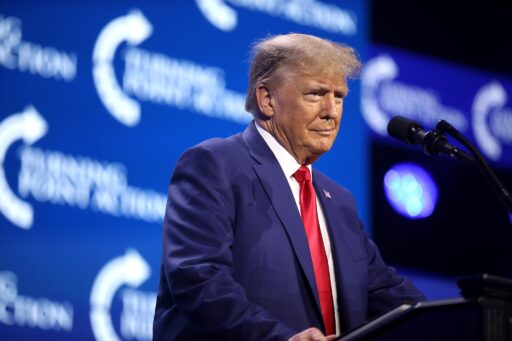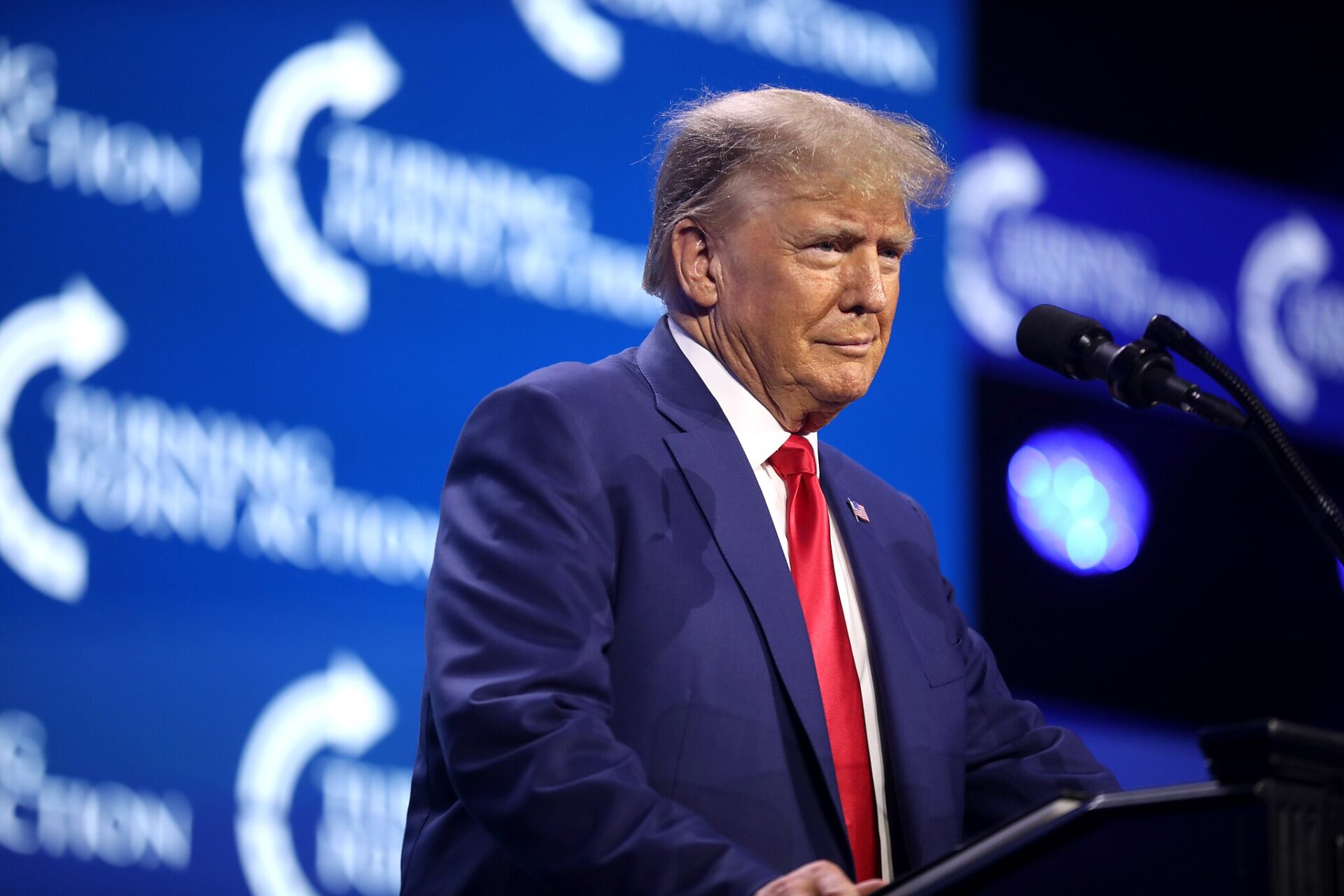Here’s what Trump had to say…
Former President Donald Trump is raising concerns about Vice President Kamala Harris’s potential rise to the Democratic nomination, suggesting that such a move could be unconstitutional. Critics fear this rhetoric may be a prelude to contesting the outcome of the 2024 election, much like he did in 2020.
Trump has characterized Harris’s possible replacement of President Joe Biden as the Democratic nominee as a “coup,” and he argues that it might be unconstitutional because she was not initially at the top of the ballot during the primaries. His comments reflect a broader strategy to undermine the legitimacy of the electoral process should he lose.
Following Biden’s announcement on July 21 that he would not seek reelection, Democrats quickly consolidated around Harris, who was recently confirmed as the party’s nominee through delegate votes. Trump, who had been leading Biden in polls and appeared to be in a strong position for November, has labeled Biden’s departure as a “coup,” and now questions the constitutionality of replacing him with Harris, particularly as recent polls suggest Harris is gaining ground.
On his Truth Social platform, Trump has claimed that Biden’s presidency was “Unconstitutionally STOLEN” from him. At a recent press conference, Trump elaborated on his view that Harris’s nomination might be unconstitutional, citing her poor performance in the 2020 Democratic primaries.
Former Obama adviser David Axelrod has suggested that Trump’s rhetoric is setting the stage for him to reject the election results if he loses, echoing concerns from many about Trump’s potential actions post-election. Some Republicans have speculated about possible legal challenges to Biden’s replacement, but experts believe these efforts are unlikely to succeed in court.
An Ohio man who supports Trump has filed a lawsuit aiming to prevent Harris from appearing on the ballot. However, the Ohio Secretary of State has indicated that parties have until September 1 to make their nominations. Legal experts, like Sonia Gipson Rankin from the University of New Mexico, argue that Trump’s claims rest on the idea that voters who supported Biden in the primaries are being disenfranchised if Harris replaces him. However, she notes that Democratic delegates did not formally back Biden for the nomination in a roll-call vote, and his name was not placed on any ballots.
As the 2024 election approaches, Trump’s statements are being scrutinized, especially given his actions following the 2020 election. Trump has made numerous allegations about the validity of mail-in ballots and the overall fairness of the election. His efforts to challenge the 2020 results, including numerous legal battles that ended in rejection due to lack of evidence, culminated in the January 6, 2021, Capitol riots. Trump now faces criminal charges related to his attempts to overturn the 2020 election results.
Trump has assured that he will accept the 2024 election results if he deems them “honest,” promising a peaceful transfer of power. President Biden, however, has expressed skepticism about the certainty of a peaceful transition if Trump loses, suggesting that Trump’s rhetoric may indicate otherwise.






